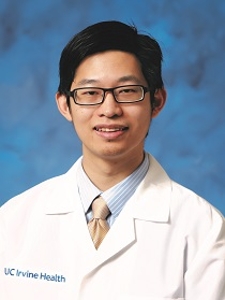Emerging Technologies for Sustainable Development special track: AI and its role in dealing with pandemics
Open Health Network
Session 313
AI is and will be playing key role in predicting future pandemics, vaccines development, predicting reactions to vaccines and more.
AI has an incredible power in becoming a major force in addressing multidimensional issues related to pandemics:
- prediction of future pandemics
- vaccines development
- prediction of outcomes
- diagnostics
- handling misinformation and more.
In this session we will highlight current uses of AI in the above areas and discuss the future opportunities.

Tatyana Kanzaveli has gone from a programmer to senior executive at Big 5 to founder and CEO of a startup company along her 20 year career,recognized as a thought leader, mentor for her ability to guide Fortune 500 and startup companies through business challenges.
She’s worked for major companies like PricewaterhouseCoopers and Fujitsu and startups in the early days of the Web.
Tatyana has personally helped companies jump from 0 to millions in revenue even during the toughest economic times. She opened new verticals and markets.
Today she is the founder and CEO of Open Health Network, the startup in a Big Data, Blockchain and Artificial Intelligence in Healthcare space. PatientSphere by Open Health Network has been featured in Venture Beat, Mobile Health News, and other prominent publications. ConstantCare by Open Health Network is the most advanced integrated, adaptive, personalized chronic diseases care management system.
She is a mentor at 500Startups and Richard Branson Entrepreneurs Centre and serves on boards for private companies. She also is licensee and organizer of highly notable TEDxBayArea conferences, she is a frequent speaker at US and International conferences on innovation, entrepreneurship and digital health.
Tatyana has been featured in the White House blog , spoke at the United Nations, presented at the first White House Demo Day hosted by the President Obama, did a TEDx talk; keynoted at WEBIT, WSIS and other international conferences.
Tatyana has been recognized as one of the top 10 Influential Women in Healthcare IT in 2015 and by Forbes as one of the top 50 women-led startup in tech founders.
Tatyana was USSR chess champion, played in the same team with Gary Kasparov, she loves to cook and kayak.
You can follow Tatyana on Twitter.

Yindalon Aphinyanaphongs, MD, PhD (Predictive Analytics Team Lead) is a physician scientist in the Center for Healthcare Innovation and Delivery Science in the Department of Population Health at NYU Langone Health in New York City. Academically, he is an assistant professor and his lab focuses on novel applications of machine learning to clinical problems and the science behind successful translation of predictive models into clinical practice to drive value. Operationally, he is the Director of Operational Data Science and Machine Learning at NYU Langone Health. In this role, he leads a Predictive Analytics Unit composed of data scientists and engineers that build, evaluate, benchmark, and deploy predictive algorithms into the clinical enterprise.

Asst. Prof @UCIrvine
Department of #Radiology. Co-Director, Center for #ArtificialIntelligence in Diagnostic Medicine (@theCAIDM
)
Daniel S. Chow, MD is the Co-Director for the Center for Artificla Intelligence in Diagnostic Medicine. He joined the University of California, Irvine in December 2016 and holds an appointment as Assistant Professor in Residence for the Department of Radiological Sciences and Neurology.
Dr. Chow completed his medical degree at the University of California, Los Angeles in 2010. He subsequently completed his radiology residency at Columbia University Medical Center through the Leonard Holman Research Pathway. During his residency, Dr. Chow recieved numerous awards including the RSNA roentgen Resident/ Fellow Research Award, ARRS Resident in Radiology President's Award, and RSNA Resident Research Grant Award. After completing residency in 2015, he completed his neuroradiology fellowship training at the University of California, San Francisco. After completing his fellowship Dr. Chow joined the neuroradiology faculty at the University of California, Irvine.
His work has led to several grant awards over 40 peer reviewed publications. 6 book chapters, and over 50 abstracts. Dr. Chow provides his expertise to several professional organization with a focus on clinical applications for AI tools. Dr. Chow works requlary with students and other researchers by providing guidance and assistance in designing studies that seek to leverage AI for biomedical applications.

Dr. Milana Trounce currently serves as Clinical Professor of Emergency Medicine at the Stanford
University School of Medicine, as Director of BioSecurity and Pandemic Resilience at Stanford, as well as
Chair of BioSecurity of the American College of Emergency Physicians (ACEP). She advises nationally
and internationally to businesses, investors and governments.
A teacher and innovator in the field of BioSecurity and Pandemic Resilience since 2004, she directs
Stanford BioSecurity, which facilitates the creation of interdisciplinary solutions by bringing together some
of nation’s most eminent experts in biosecurity, pandemic resilience, public health, epidemiology,
medicine, disaster management, policy, engineering, technology and business. She also founded and
directs a diversity-focused Healthcare Leadership course at Stanford since 2016.
Previously, Dr. Trounce served as Assistant Clinical Professor of Medicine at the University of California
San Francisco where she was the Medical Director of Disaster Response and served as a spokesperson
for the American College of Emergency Physicians. Dr. Trounce also served as a faculty member at
Harvard University Medical School. She directed and oversaw execution of BioSecurity related
international programs on behalf of the US State Department and worked closely with heads of
international research and development organizations.
Dr. Trounce graduated from UC Berkeley where she was honored as the top undergraduate woman,
received her MD from the University of California San Francisco and her MBA from Stanford. She is a
former professional ballerina. She completed her emergency medicine internship and residency at BI
Deaconess Medical Center at Harvard and a fellowship in Disaster Medicine and Bioterrorism Response
at Harvard.
Linked- in: https://www.linkedin.com/in/milana-boukhman-trounce-md-mba-832611/
Stanford: https://profiles.stanford.edu/milana-boukhman
A couple other links.
https://www.womencorporatedirectors.org/WCD/Events/Global_2020/bios/Dr_Milana_Boukhman_Trounce.aspx
https://www.facebook.com/watch/live/?v=446750205872502&ref=watch_permalink
-
 C3. Access to information and knowledge
C3. Access to information and knowledge
-
 C7. ICT applications: benefits in all aspects of life — E-health
C7. ICT applications: benefits in all aspects of life — E-health
-
 C7. ICT applications: benefits in all aspects of life — E-science
C7. ICT applications: benefits in all aspects of life — E-science
-
 C11. International and regional cooperation
C11. International and regional cooperation
AI is a major driver in everything in healthcare [C7]
AI for pandemics will require international and regional cooperation [C11]
AI will be playing a major role in spreading a knowledge and information about pandemic and handle misinformation [C3]
-
 Goal 3: Ensure healthy lives and promote well-being for all
Goal 3: Ensure healthy lives and promote well-being for all
AI is already playing a significant role in many aspects of healthcare. [Goal 3].
The use of AI for pandemics will ensure that every country will get an advance warning of upcoming pandemic [predictive]; use AI to rapidly develop vaccines; predict outcomes for infected people and suggest interventions; fight misinformation and more.
https://www.youtube.com/watch?v=9oCuV7xH4ck
https://www.youtube.com/watch?v=DzwScWEEZmc
https://venturebeat.com/2018/10/25/patientsphere-uses-ai-and-blockchain-to-personalize-treatment-plans/




